Founder and co-director of Writing Workshops Los Angeles Edan Lepucki fittingly dreamt of becoming a writer from the moment she learned to read. After receiving her BA at Oberlin College and working at LA-based bookstore Book Soup among a supportive community of like-minded creatives, Edan started getting short stories published in literary journals and pursued her MFA at the University of Iowa Writers’ Workshop. By age 23, she felt the hard work paying off.
Her first novel, California, was released in July, amid an overnight popularity brought on by unexpected PR from The Colbert Report. Coming in at #3 on the New York Times Bestseller List, the story marked an unprecedented success for Edan, yet the support of such award-winning authors as Dan Chaon and Jennifer Egan has taught Edan that it’s not about the accolades and titles one receives—it’s about the writing itself.
With a life so immersed in writing, Edan keeps herself in check by making time for herself and her family—this means saying “Yes!” to pedicures, gourmet doughnuts, Jacuzzi time and days at the beach. She also keeps things in perspective by viewing failure as proof of tenacity and an opportunity for improvement. Once the sting of rejection wears off, she says, “Try again and show the world it was wrong to say ‘No’ to your brilliance.”
Her Starting Point
How did you begin your career as a writer after college? Did you have any mentors, guides or role models to help you through the process of establishing yourself?
I wrote in high school and then double-majored in English and Creative Writing at Oberlin College. I was fortunate to have champions both in high school and college who urged me to write. At Oberlin, Dan Chaon was my mentor and his confidence in my writing gave me the courage to believe that I would write and publish a book one day.
After I got my B.A. from Oberlin, I worked full-time at a bookstore in LA called Book Soup. This was a whole other education that led me to the career I have today. At Book Soup I met writers, I read a ton and I saw that I could lead a fulfilling and creative life if I worked for it. It was important to me that I didn’t have a high-stress office job unrelated to my interests. At Book Soup, I was surrounded by creative people, and like them, I did my art whenever I wasn’t working. It was a supportive and inspiring—if low-paying!—community.
Dan Chaon urged me to start submitting my work to literary magazines even before I graduated from college. I followed his advice and after two years (!) of submitting, I finally got a story published in a small journal out of the University of Virginia calledMeridian. Dan also had urged me to apply to MFA programs, and I was accepted to Iowa around the same time my story was accepted for publication. At about age 23, I started to feel like my hard work was paying off.
You completed the University of Iowa’s Writers’ Workshop post-college. How exactly did this program prepare you for your writing career? How beneficial was it in terms of developing your skills as a writer?
I went to Iowa from 2004 to 2006, and I was 25 when I graduated. I was very young, but not so young that I didn’t recognize the enormous gift of time I was given to work on my craft. I arrived clueless and I left with a handful of solid short stories and the sense that I had started my writing career. I was a writer—it was important to me that I could finally make such a declaration, published book or not! At Iowa I learned to devote my time to writing, and to make it a priority. I also met a lot of wonderful writers and readers who still give me feedback on my work today: these relationships are essential. My Iowa degree also allowed me to start my small writing school business, Writing Workshops Los Angeles. Students trust my credentials and, even at the young age of 25, I felt like I had the authority to teach writing.
That said, an MFA isn’t required to be a writer. My time spent at Iowa was beneficial to me, but everyone is different. Also, I didn’t start writing novels until after I’d graduated, so I learned that craft elsewhere: from doing it on my own, reading a lot and teaching novel-writing classes. I recommend writers get an MFA if they really want one, and/or if they’d like to teach. Unless you’re wealthy and can afford to spend the money, I recommend attending a program that offers financial aid!
When did your passion for writing begin, and what first steps did you take in order to establish yourself as a pro? How did you work up the courage to put some of your earliest work out there?
I’ve wanted to be a writer for as long as I’ve been a reader. It’s truly been my only professional dream. Submitting my work for publication to small magazines was my first step in making this career a reality, as was applying to—and attending—a graduate program in creative writing. Teaching has helped me to define myself as a writer, too; even though I wasn’t publishing books or earning money as a writer, I was making my living by talking about writing and books, and by sharing my expertise with others. That made me feel like I was not only part of a literary community, but creating one. That’s been incredibly empowering.
Honestly, it didn’t take much courage to submit my work or apply to graduate school. I assumed I’d get rejected, because that’s what writers do: they get rejected! I guess you could say my expectations were low. If you send your work out there hoping for a yes but expecting a no, then you can view rejection as a kind of badge of honor, as proof of your tenacity, as proof that you’re a real writer. Also, once the sting wears off, the rejection can push you to improve, rewrite, try again and show the world it was wrong to say “no” to your brilliance.
A real writer hears no again and again, and keeps writing. Fail better, as Samuel Beckett says.
Although your first novel was released in July of this year, you’ve published many shorter pieces and achieved several accolades in the world of writing. Do you feel like your career is just beginning to blossom, or do you feel like you’re simply beginning a new chapter? (Pun intended!)
I have two minds about it. On the one hand, I have been working as a writer, and working toward publishing a book for a long time, so publishing California is just one more chapter in the book that is my career. My first published story came out in 2004 (a decade ago!) and I’ve been a staff writer for The Millions for a few years now. In 2010, I published a short novella called If You’re Not Yet Like Me. So, in one respect, I’ve been publishing and making small steps toward this bigger publication for quite a while, and all of it is part of my long-term writing life.
On the other hand, publishing California with a major press like Little, Brown was really a huge accomplishment for me. It was my life dream. And it changed my professional life. For one, I got paid for this book, which allowed me to teach a little less (so I could write more), and pay for more childcare for my son (so I can write more) and rent an office space (again, so I can write more.) It also put me on the literary map, so to speak; more people know about my work and that’s important as I write my next novel. As an author, I want readers, and publishing Californiahas allowed me to find them.
No matter how I view this publication, though, I definitely think it’s just the beginning for me. I have so many books I want to write!
Her Big Break
How do you manage to keep the characters, events, time periods and locations of your fiction pieces straight? What is your method for staying organized and making sure that there are no continuity errors in your work?
In a first draft, I write by intuition, without a clear plan of how the story will go. I like to daydream a lot before writing, and then I go directly to the computer and start typing. After every few scenes, I write by hand in my journal to brainstorm next steps and make notes on what I have already written. This keeps my ideas in order…sort of. Usually my first drafts are polished, sentence-wise, but require revision in terms of structure and plot. After I soldCalifornia, my editor asked me to write a timeline to clarify the chronology of past events. Since the book takes place in the future, there is a lot of world building, most of which happened in revision with my editor. Writing a timeline and hashing out past events really helped to bring Cal and Frida’s ruined world into focus.
Most writers I know handle continuity issues in revision. Writing a first draft, at least for me, is all about discovering
and investigating characters and their choices, creating a mood and following the tension and conflict of the story. The little details get lost in all of this, and I don’t give them a second glance until rewrites.
That said, my fictional worlds feel very real to me. I spend years inside of them. They make sense in my head, and I don’t have trouble keeping track of them mentally. Getting it all clear on the page, however, is another feat entirely!
How do you keep yourself motivated everyday? What strategies do you use to keep yourself from getting burnt out?
The biggest challenge for me is sustaining a productive writing practice, especially when I’m working without deadlines. I have to motivate myself, because no one else will do it for me. That is rarely easy. I do it by keeping to certain rituals: I make writing the first task of the day, before any book publicity or WWLA demands. If I don’t write first, then it often doesn’t happen at all. I try to write from 9:00 a.m. to noon four or five times a week. That schedule is manageable, and I thrive on the routine. I also have a couple of friends who read my work and give me feedback, and I meet with a writing group to share pages every six weeks or so. Ritual, focus and feedback keep me disciplined.
I am always energized after meeting with my writing group or emailing about pages with a friend who lives far away. I find, too, that reading sparks a desire to write. Sometimes it can be as simple as reading a poem out loud to be reminded what language can do on the page. If that doesn’t work, I try chocolate, a strong cup of coffee and a self-indulgent weeping session!
Sometimes, not writing is a powerful motivator, too—going for a walk, having a long, thought-provoking conversation, looking at art, listening to music and dancing. These make me feel alive and happy, and they push me back to my writing.
With all the praise, awards and kind words you’re receiving for your work, do you ever feel daunted or intimidated by your own success? How do you feel when you hear compliments or receive accolades for your writing?
It’s rare for me to be daunted by the good stuff because for all the success I’ve had in my writing career, it’s the negatives—a bad review, for instance, or a rejection from an established literary magazine—that hurt my process and intimidated me if I let it. Conversely, I’m thrilled to receive positive feedback on my writing. I still can’t believe that people are reading what I wrote, and that they’re connecting with it. It means so much to me.
That said, if I get too interested in what others think of my work, praise included, then I’m not truly thinking about the writing itself. When I’m working on a new story or book, I need to shut the world out and just sit with my sentences and my characters. Nothing else matters.
Was there an exact moment when you realized that you were becoming an established writer? If so, would you take us through the realization step by step?
No, not one moment, but a few—getting my first story published, getting the phone call that I’d gotten into Iowa, getting an agent, publishing my novella, getting another agent when the first one dumped me, having multiple interested editors call me to discuss California, seeing the cover for the first time, getting an email from a reader who said they really loved my book, driving across the Richmond Bridge on the way back from a kid’s museum in Sausalito, my son napping in the back, sobbing my eyes out because Little, Brown had just called to tell me that my book had debuted at #3 on the New York Times Bestseller List.
All of these moments are equally significant. And honestly, they don’t change how it feels to write, both what’s amazing about it, and what’s terrifying.
Her Perspective
We can imagine that it would be easy for writers to get lost in their work or to get wrapped up in the fictional world they’ve created. How do you remember not to skip out on “me time” and take breaks from your work regularly?
This made me laugh because I have no problem giving myself “me” time! I am a huge fan of pedicures, massages, facials, long dips in Jacuzzis, reading on the beach, gourmet doughnuts, making out with my husband, cuddling with my child—anything that makes me feel happy.
I do have trouble disconnecting from the day-to-day work of running Writing Workshops Los Angeles. Those are often small tasks, and I like feeling accomplished when I complete them, but the list of such tasks is endless if I let it be. I try my best to not do work stuff when I am with my son and husband, and to keep it to a minimum on the weekends. I also do social media fasts, where I leave Facebook, Twitter and Tumblr for months at a time; that detachment from online chatter rejuvenates me and helps me focus.
In another sense, writing is a form of “self-care” because doing it reasserts what’s most important to me, and it makes my life richer and more mysterious. It adds another layer of meaning to my days.
What writers do you look up to as role models? What qualities do you admire in them and what do you try to emulate?
I admire a lot of writers for their work, like Margaret Atwood, Jennifer Egan, Tom Drury, Edith Wharton, Edward P. Jones, Dan Chaon, Lorrie Moore, Dana Spiotta, Antonya Nelson and Tana French. I interviewed Jennifer Egan for The Millions, and we’ve kept in occasional touch via email. I am always struck by how kind and down-to-earth she is, and how humble. She is a Pulitzer Prize winner, but she’s still a working writer, like the rest of us. It’s about the writing itself, not the accolades. She also is very supportive of fellow women writers.
Egan also is, like my former teacher, Dan Chaon, a passionate reader, and I of course try to proceed that way as well—to be a reader as well as a writer.
What skills are essential to working as a writer? Is it important to stick to one type of writing or do you think writers should be able to try out lots of different genres and mediums?
To be a writer I think you need to have a facility with words and a passion for the form or forms you’re working with, be it the novel or the sonnet or the personal essay. Writing also requires a lot of solitude. And if you’re writing fiction, I think an interest in people (observing and writing about them, if not actually being with them) is essential. I think writers should write in as many or as few genres or media as they’d like. Do what suits you, what excites you and don’t try to be or write something that doesn’t.
And finally, what do you wake up looking forward to? What’s next for your career?
Seeing my son and all the weird-silly stuff he says and does, hearing my husband’s latest witty joke, drinking coffee and getting lost in sentence making—that feeling of time disappearing and the real world slipping away. It’s so delicious and exciting and strange.
You May Also Like
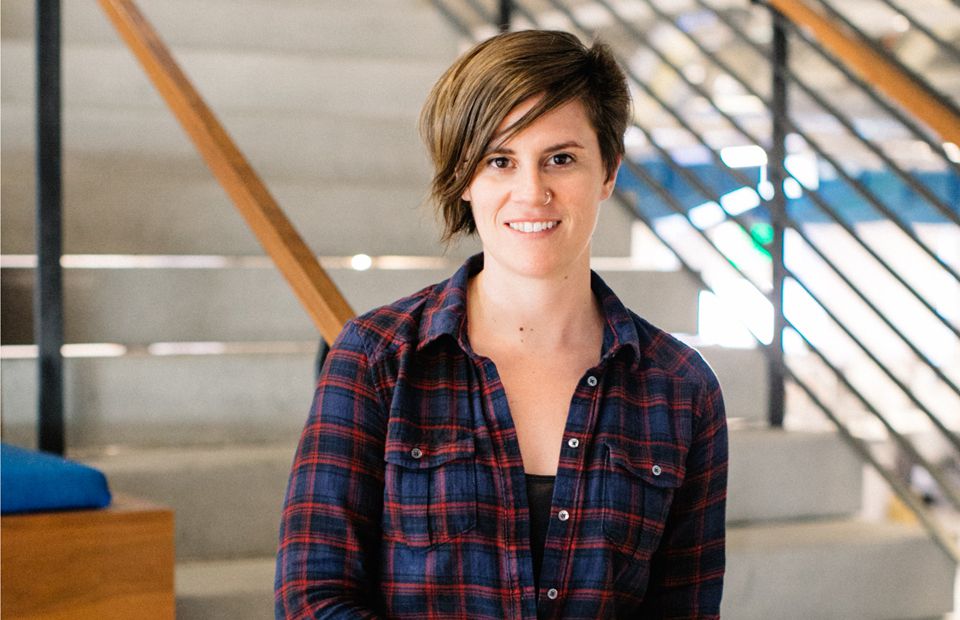
Media
How to Use Positive Reinforcement at Work—and Other Advice from a Pandora PM
"My advice to anyone who wants to get into product management is: check your ego at the door."
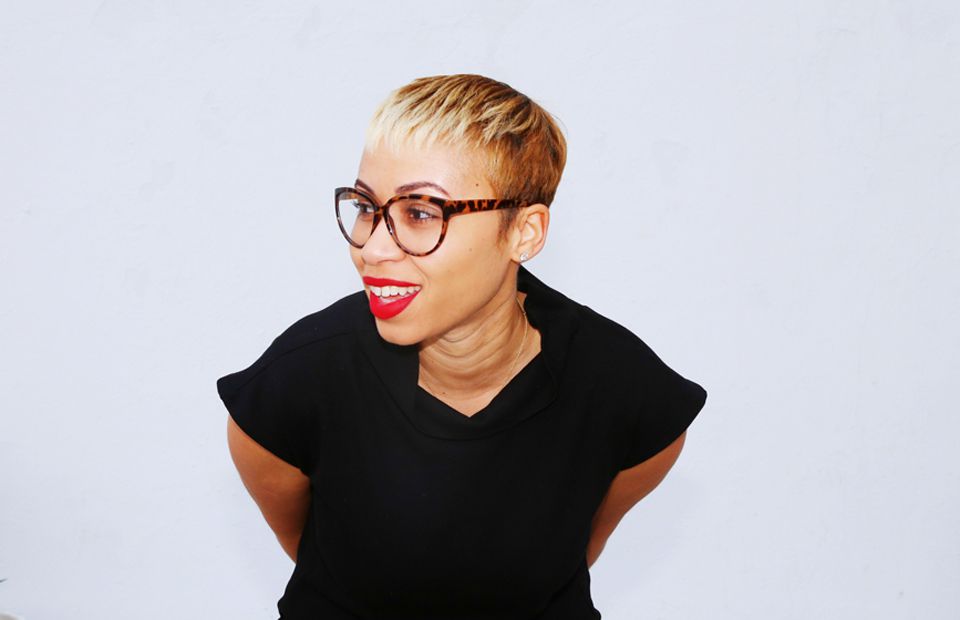
Media, Communications + Public Relations
How to Take Risks, Make a Switch, and Find a Career You Love—From a Woman Who's Done It 4 Times
Making your wildest dreams come true starts with understanding yourself—and Ahyiana Angel can help.
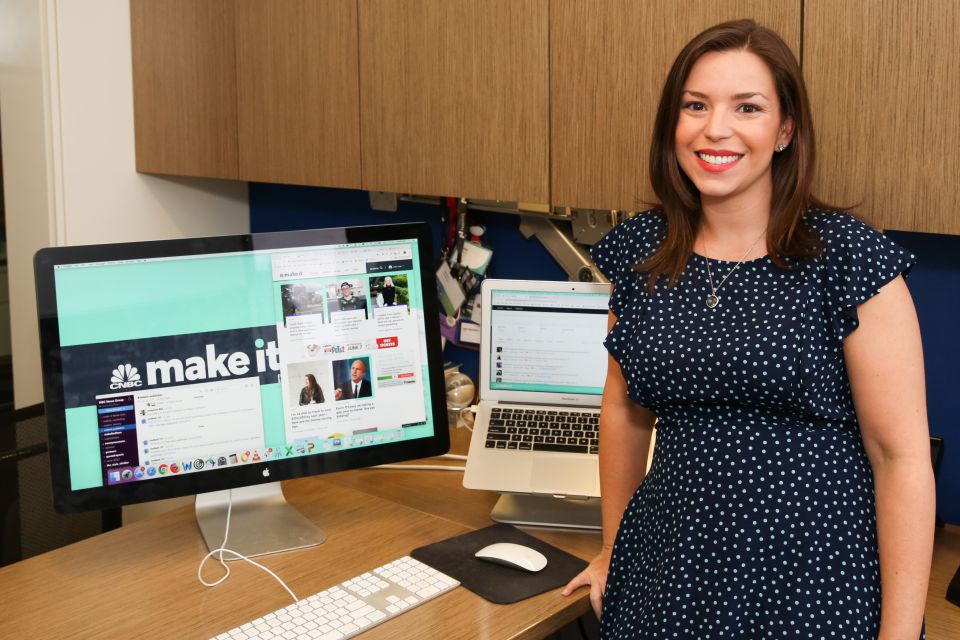
Communications + Public Relations
Creating Content That Empowers Audiences with CNBC's Digital VP and Managing Editor
This week, we interviewed Jenna Goudreau, the VP and managing editor of CNBC Digital. Let's learn how she keeps her powerhouse content creation machine going.
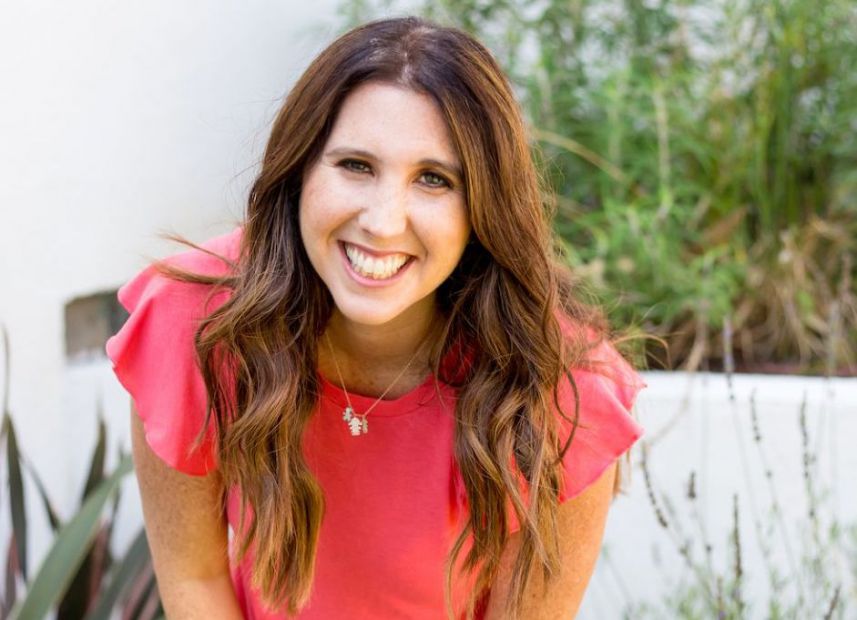
Entertainment
Working Creatively From Home with Cathy Heller
Cathy Heller is a singer, songwriter, entrepreneur, mother—and now, an author. Determined to lift others up to the "happiest versions of themselves," this queen of the hyphenated job title, leads by example. She shared how to build a fulfilling career in a creative field—all while working from home.
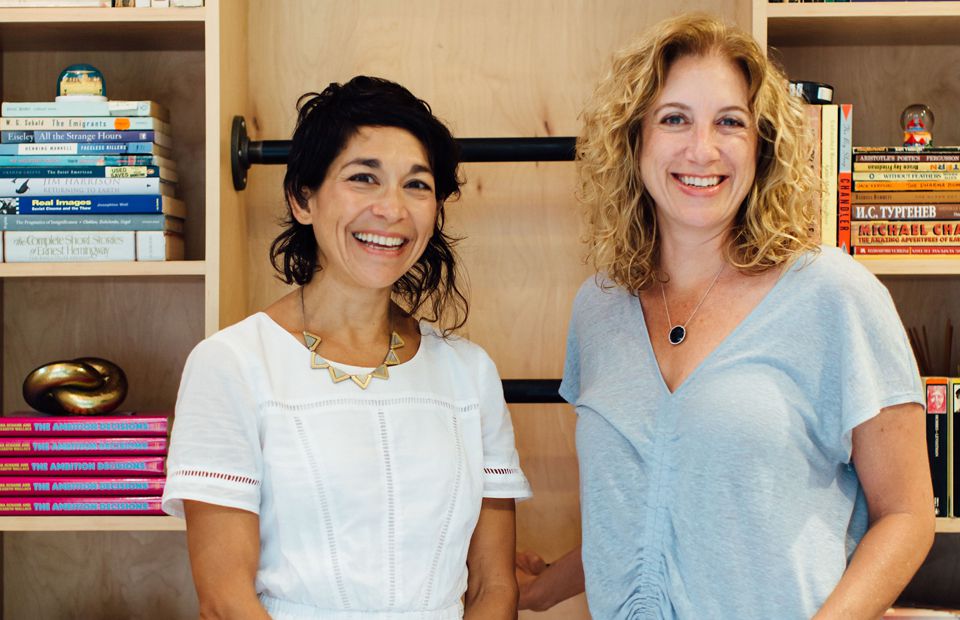
Media
Women, Work, and What It's Like to Write With Your Best Friend—From the Authors of The Ambition Decisions
"We should all give ourselves permission to challenge the things we think can’t be challenged."
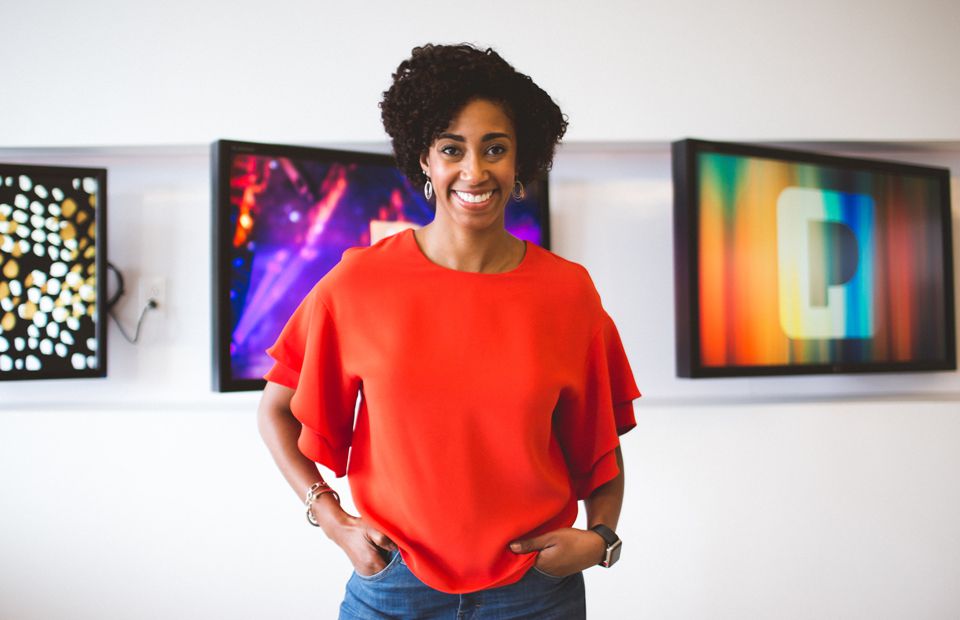
Media
A Director at Pandora on Staying Present, Celebrating Others, and Learning From Failure
"Share your wins, but most importantly, share what your growth areas are, share when you fail, share how you bounced back."
Get the Best Career Advice Delivered To Your Inbox
Join our newsletter to stay in the loop.
